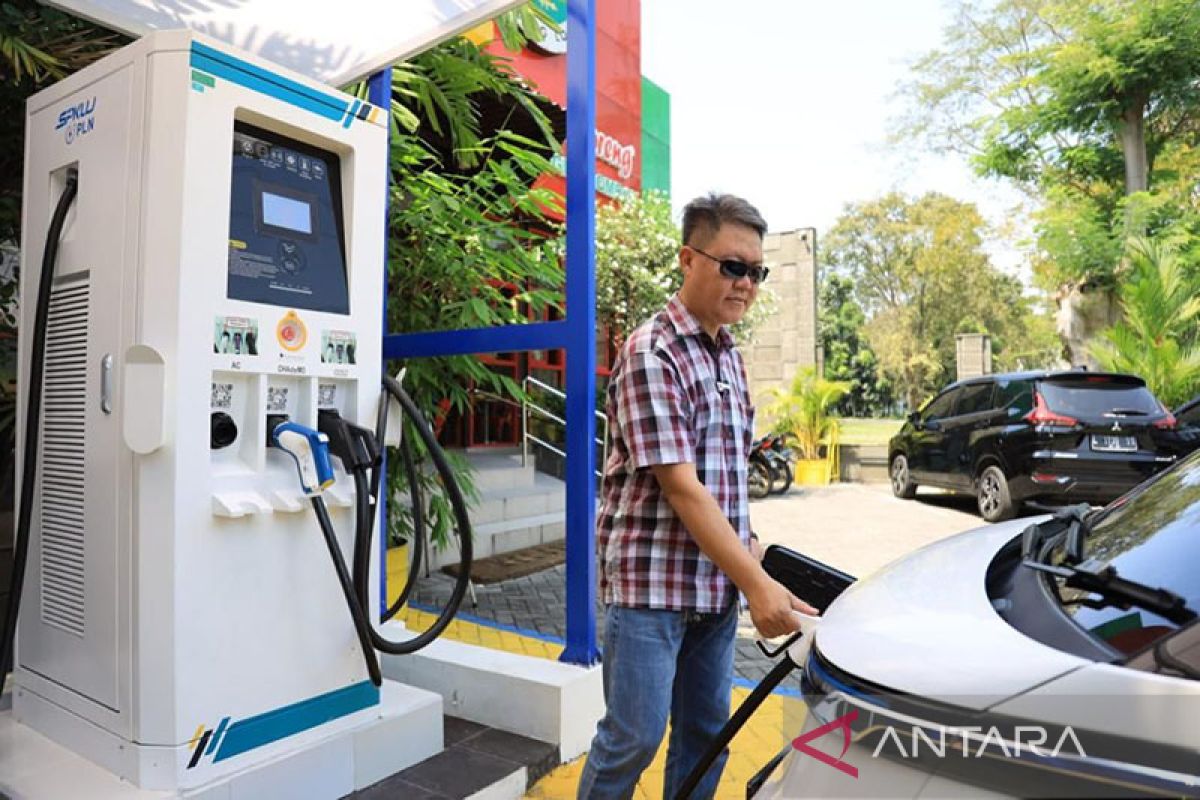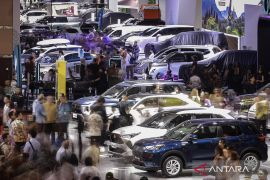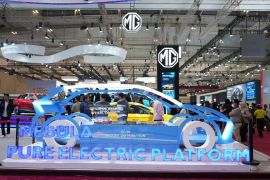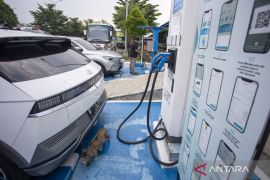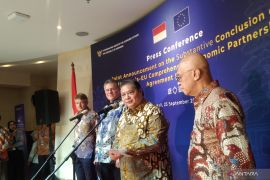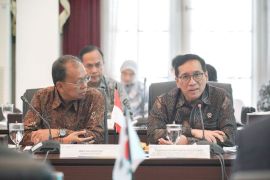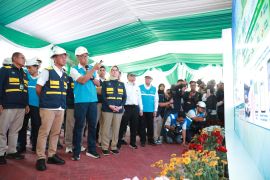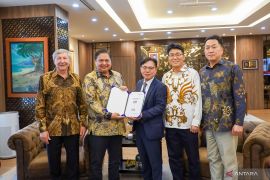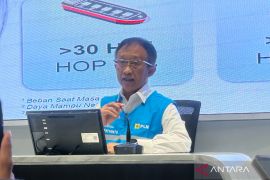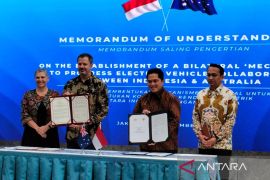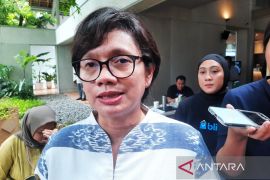The summit was held in Labuan Bajo, East Nusa Tenggara (NTT), on May 9-11, 2023.
ASEAN leaders agreed to develop an EV ecosystem and become an essential part of the world's supply chain.
Through the agreement, ASEAN will cooperate in increasing the number of charging stations and infrastructure and creating a business environment and investment climate to attract investment, including public-private partnerships.
Apart from that, the ASEAN will optimize the production and utilization of sustainable materials and resources to reach a higher value of the EV supply chain in the region and boost the participation of micro, small, and medium enterprises (MSMEs).
ASEAN is collaborating on research and human resource development, promotion of investment opportunities and improvement of public awareness, and appropriate management of environmental impacts.
Moreover, it is collaborating in strengthening regional energy security, promoting the use of renewable energy in the mobility sector, and discussion on financing to support development of the EV ecosystem in the region.
The adoption of EVs will play a major role in ASEAN's efforts to reduce greenhouse gas emissions, accelerate energy transition, conduct decarbonization in the land transportation sector, achieve the net zero emissions (NZE) target, and bolster energy security in all ASEAN member countries and in the region.
For Indonesia, which is currently holding the ASEAN chairmanship this year, the development of batteries and EVs is inseparable from its downstreaming policy that is currently being promoted.
Owing to nickel downstreaming that started in 2020, Indonesia is currently moving towards realizing its target of becoming the world's key player in the industry.
President Joko Widodo (Jokowi) also emphasized that downstreaming becomes a key in the agreement.
ASEAN agreed to build an electric car ecosystem and become an important part of the world’s supply chain. Hence, industrial downstreaming becomes key.
Downstreaming has been proven able to boost national export performance.
The improvement in export performance has been significant. During the 2017-2018 period, the nickel export value only reached US$3.3 billion. Meanwhile, with the support of the downstreaming policy, the value of exports of nickel derivative products reached US$20.9 billion in 2021 and US$33.8 billion in 2022.
Downstreaming, especially for mineral and mining commodities, is also considered to be able to promote Indonesia's economic equity, boost product competitiveness, and free Indonesia from the trap of the middle-income country status.
Related news: First ASEAN EV, battery technology conference held in Bali
Related news: Increasing EV charging, battery swapping stations needed: ministry
Becoming an EV battery producer
Battery is a crucial component in battery-based EVs. Thus, it has presented an opportunity to Indonesia, with the potential that the country has.
Coordinating Minister for Maritime Affairs and Investment Luhut Binsar Pandjaitan expressed optimism that Indonesia would become one of the biggest EV battery producers in the world in 2027, as the industry's ecosystem continues to develop in the country.
Currently, South Korean company LG Energy Solution is cooperating with the consortium of the State-Owned Enterprises (SOEs) Ministry to build an EV battery cell industry that is integrated with mining, smelting, refining, and precursor and cathode industries, with an investment value of up to US$9.8 billion.
Apart from that, there is also a Chinese company China Contemporary Amperex Technology Co. Limited (CATL) that is working with state-owned mining firm PT Aneka Tambang (Antam) and Indonesia Battery Corporation (IBC) to build a battery factory, worth US$5.97 billion, in North Maluku.
If the plan runs accordingly, Indonesia can produce the first lithium battery in 2025, and in 2027, Indonesia is very likely to be one of the world's three biggest producers of lithium batteries, including for electric cars.
As home to 23.7 percent of the world's nickel reserves, which is the biggest in the world, Indonesia becomes a country that has a bargaining position in the market and has great potential to become a major player in the EV industry.
Based on the record of the Indonesian Nickel Mining Association (APNI), Indonesia's nickel reserves beat Australia's (21.5 percent), Brazil's (12.4 percent), Russia's (8.6 percent), Cuba's (6.2 percent), and the Philippines' (5.4 percent).
Among ASEAN countries, only Thailand and Indonesia have built their EV industry. However, among ASEAN countries, only Indonesia has become an EV battery production hub, followed by the Philippines.
Cooperation in ASEAN
Not only at the government level, but efforts are also being made by industry players to support development of the EV battery industry.
Indonesia, along with Singapore, Malaysia, Thailand, and the Philippines, agreed to ink cooperation contracts for the development of EV battery technology last May.
Two Indonesian institutions -- the National Center for Sustainable Transportation Technology (NCSTT) and the National Battery Research Institute (NBRI) -- along with associations from the four countries will collaborate to open research and development collaboration opportunities in the field of EV battery technology.
The cooperation also aims to promote the battery ecosystem in ASEAN, with the aim of a more integrated and sustainable transportation system.
The associations from the four countries that are involved in the collaboration are the Singapore Battery Consortium (SBC), the Thailand Energy Storage Technology Association (TESTA), NanoMalaysia Berhad, and the Electric Vehicle Association of the Philippines (EVAP).
NCSTT has been acknowledged globally as a center of multidisciplinary research that focuses on organizing, supporting, and promoting applied engineering and technology for transportation systems in Indonesia.
The collaboration is also aimed at advancing battery technology, including the safety aspect and standardization.
With a uniform standard, EV batteries in the region will be interchangeable and can be used for similar vehicles, so they can be more integrated.
The standardization, which will make EV batteries in ASEAN uniform, in addition to providing convenience, is also affecting potential consumers' level of trust in EVs.
In the development of battery and EV ecosystems, it can be said that Indonesia is one of the developing countries that is expected to be able to encourage other developing countries to make the most of their potential and enter the global supply chain.
In Southeast Asia, Indonesia's role can become stronger with support, cooperation, and collaboration with neighboring countries. Hence, it is not impossible that the ASEAN can become a key player in the world's battery and EV industries.
Related news: Government imposes zero percent tax on electric vehicles
Related news: ASEAN leaders explore cooperation on EV ecosystem development
Translator: Ade Irma, Raka Adji
Editor: Sri Haryati
Copyright © ANTARA 2023
